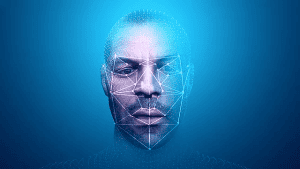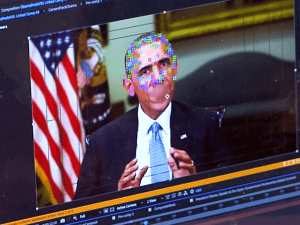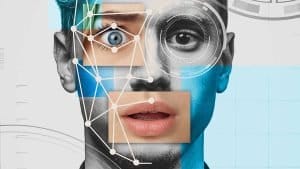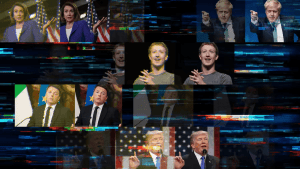The following article answers the question – Are Deepfakes Illegal?
Artificial Intelligence (AI) has revolutionized various industries, and one of its most intriguing applications is the creation of deepfakes.
Are deepfakes illegal? The answer is not as straightforward as it may seem, given the diverse use of deepfakes in entertainment, political, and cybersecurity contexts.
This article delves into the instances when deepfakes can be considered illegal, the laws addressing this technology, and the security issues surrounding deepfakes.

Are Deepfakes Illegal? Understanding Deepfakes
Before we delve into the legality of deepfakes, it is important to understand what they are. Deepfakes are AI-generated imitations of a person’s appearance, actions, and behaviors.
They can be used to create realistic images, videos, audio, and other types of deepfakes mimicking individuals, often without their knowledge or consent.
The advancement of AI technology has made it increasingly easy to produce deepfakes, making them a potential tool for cybercriminals and unethical individuals.
Spotting deepfakes can also be a difficult task as this technology becomes more sophisticated.

The Dual Nature of Deepfakes
While deepfakes have a nefarious reputation, they can also be used for benign purposes. In the entertainment industry, for instance, deepfakes have been used to recreate performances of deceased celebrities such as Audrey Hepburn and Paul Walker.
On the flip side, deepfakes have also been used for malicious activities, including damaging reputations and manipulating public opinion.
There are thousands of real-life deepfake examples floating around the Internet, making it very difficult to monitor malicious activity.
So when is the use of deepfake technology considered illegal?

When Are Deepfakes Considered Illegal?
The legality of deepfakes is complex and depends on the context and intent of their use. Here are some instances when creating and distributing deepfakes might be considered illegal:
Infringement of Intellectual Property Rights
Intellectual property rights protect the creations of an individual, including their likeness. If a deepfake is used to impersonate an individual without their consent, it can potentially infringe on their intellectual property rights.
Violation of Personal Rights
Deepfakes can be used to exploit individuals, particularly in the realm of non-consensual pornography. This not only violates the personal rights of the individual depicted but can also lead to emotional distress and reputational damage.
Spreading Misinformation
Deepfakes can be used to spread false information about individuals or events, which can lead to public confusion, anger, and mistrust. This is particularly concerning in the context of politics, where deepfakes can be used to manipulate voters’ opinions.
Data Protection and Privacy Concerns
Deepfakes can be used to steal an individual’s identity, leading to potential data breaches and privacy violations. This is a serious concern in our increasingly digital world, where personal data is often stored online.
Political Manipulation
In the political arena, deepfakes can be used to harm a candidate’s reputation or influence an election. This can disrupt democratic processes and potentially sway the outcome of an election.

National Security Threats
At a larger scale, deepfakes can pose a threat to national security. For example, a deepfake of a world leader making false statements could potentially lead to international tensions or conflict.
Laws Addressing Deepfakes
In the face of these challenges, several countries, including the United States, have implemented laws to counteract the misuse of deepfakes.
The National Defense Authorization Act (NDAA)
The 2021 version of the NDAA now mandates the Department of Homeland Security to submit an annual report on deepfakes and related content.
The Deepfake Report Act
The Deepfake Report Act mandates the Department of Defense to report on the potential impacts of deepfakes on national security and proposes countermeasures to mitigate these risks.
The Identifying Outputs of Generative Adversarial Networks Act
Implemented in 2020, the Identityfing Outputs of Generative Adversarial Networks Act supports research on the implications of deepfakes and proposes methods to detect and combat this technology.
Security Issues of Deepfakes
Despite these legal efforts, the misuse of deepfakes remains a deeply rooted security issue.
This technology is not only destructive to its victims but is also elusive to the law, making it difficult to effectively regulate.
The Importance of Verification Processes
Given the threats posed by deepfakes, the importance of verification processes such as Know Your Customer (KYC) and Know Your Employee (KYE) cannot be overstated.
These processes can help businesses verify the identity of their customers and employees, potentially preventing the misuse of deepfakes.
Are Deepfakes Illegal – Final Thoughts
While the question “are deepfakes illegal?” does not have a simple answer, there is no doubt that this technology poses significant ethical and legal challenges.
As we continue to grapple with these challenges, it is crucial to stay informed and vigilant about the potential misuse of deepfakes.
Are Deepfakes Illegal FAQs
Are deepfakes illegal?
The legality of deepfakes depends on the context and intent of their use. While not inherently illegal, deepfakes can be used in ways that are against the law, such as infringing on intellectual property rights, violating personal rights, spreading misinformation, and posing threats to national security.
What are the consequences of using deepfakes for illegal purposes?
The consequences of using deepfakes for illegal purposes can range from legal penalties to reputational damage. The exact consequences depend on the nature of the illegal activity and the jurisdiction in which it occurs.
How can businesses protect themselves from the misuse of deepfakes?
Businesses can protect themselves from the misuse of deepfakes by implementing robust verification processes, such as Know Your Customer (KYC) and Know Your Employee (KYE). These processes can help verify the identity of customers and employees, potentially preventing the misuse of deepfakes.
What laws exist to address the misuse of deepfakes?
Several laws have been implemented to address the misuse of deepfakes, including the National Defense Authorization Act (NDAA), the Deepfake Report Act, and the Identifying Outputs of Generative Adversarial Networks Act. These laws mandate reporting on deepfakes, support research on the implications of deepfakes, and propose countermeasures to combat this technology.
Can using a deepfake result in a lawsuit?
Yes, using a deepfake can potentially result in a lawsuit. If a deepfake is used to defraud, harass, or harm someone’s reputation, the individual targeted may have grounds for a lawsuit. This can include cases where deepfakes are used to create non-consensual pornography or if they otherwise violate a person’s right to privacy or to control their own likeness.